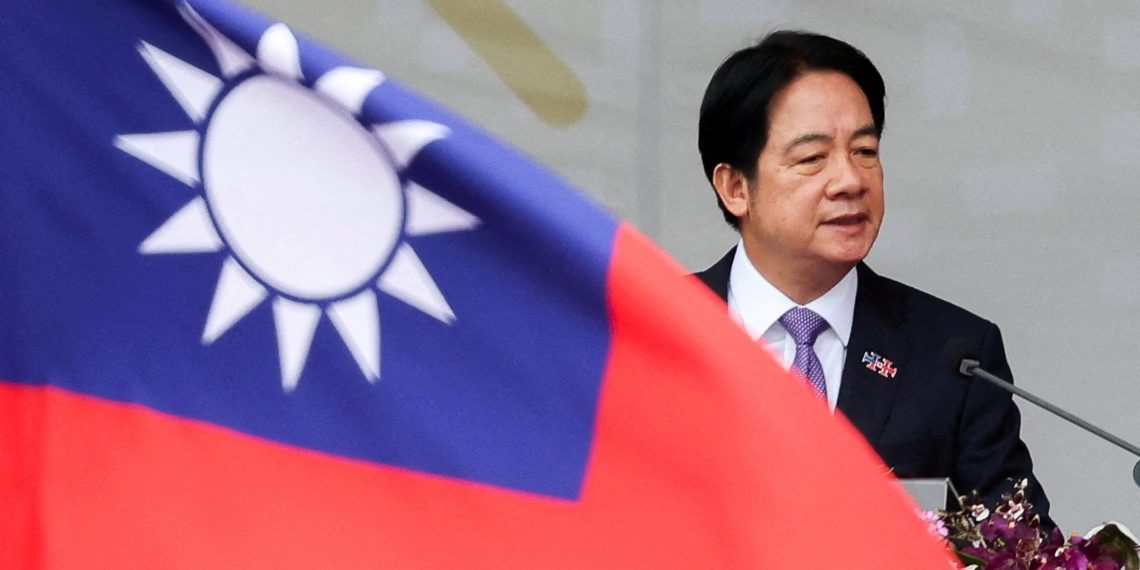Taiwanese President Lai Ching-te has issued a sharp rebuke to China, warning that aggressive military drills and coercive tactics will fail to garner international respect. Speaking during a news conference in Palau at the close of his first overseas tour since assuming office in May, Lai called for diplomacy over intimidation in the Pacific region.
“No matter how many military exercises and warships and aircraft are used to coerce neighboring countries, they will not be able to win the respect of any country,” Lai declared. His remarks come amid widespread speculation that Beijing plans to conduct military exercises around Taiwan in response to Lai’s trip, which included stops in U.S. territories and several Pacific island nations allied with Taipei.
The Taiwanese leader’s comments were amplified by China’s announcement of sanctions targeting 13 American companies and six executives in retaliation for recent U.S. arms sales to Taiwan. The escalating tensions highlight the enduring friction between democratic Taiwan and authoritarian China, which continues to claim sovereignty over the self-governing island.
Lai’s Pacific tour underscores Taiwan’s struggle to maintain its shrinking network of diplomatic allies in the face of Beijing’s relentless pressure. With visits to Palau, the Marshall Islands, and Tuvalu—three of only 12 nations that officially recognize Taiwan—Lai emphasized unity among democracies to counter growing authoritarian threats in the region.
“Taiwan is confident that it will continue to deepen cooperation with the new [U.S.] administration, resist authoritarian expansion, and contribute more to regional stability and peace,” Lai said, responding to questions about the upcoming U.S. leadership transition.
While Lai seeks to strengthen ties with the U.S., China has denounced his actions as an attempt to bolster Taiwan’s independence. Chinese Foreign Ministry spokesperson Lin Jian accused Lai of engaging in separatist activities under the guise of diplomatic exchanges.
“Taiwan is an inalienable part of China’s territory,” Lin said during a press briefing in Beijing. “No matter what they say or do, they will never change the fact that China will and must be reunited.”
Beyond rhetoric, China has ramped up its influence campaign in the Pacific. A recent incident in Paraguay, where a visiting Chinese diplomat reportedly pressured lawmakers to sever ties with Taiwan, further exemplifies Beijing’s aggressive diplomatic maneuvers. Lai responded by condemning such actions, asserting that China’s tactics undermine global stability and mutual respect.
Lai also drew attention to China’s deepening military alignment with Russia and North Korea, warning that such partnerships underscore the need for democracies to stand united. “When authoritarian countries gather together, democratic countries must unite to ensure global and regional stability and development,” he stressed.
With the specter of Chinese military drills looming, Taiwan faces an increasingly hostile geopolitical landscape. Yet Lai’s defiance signals Taiwan’s determination to resist authoritarian pressure and champion its democratic values on the world stage.









